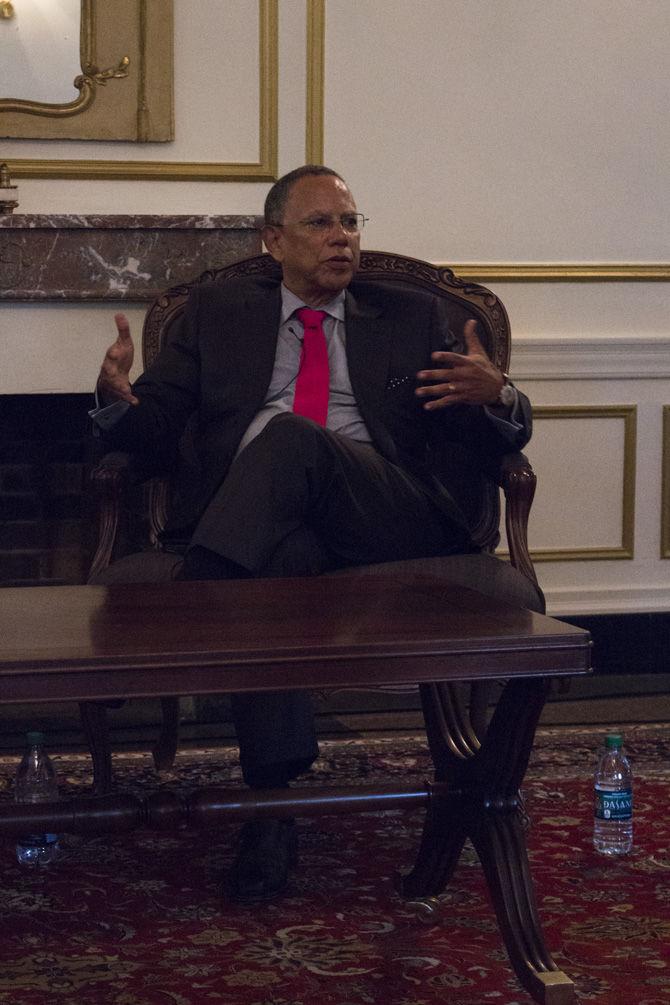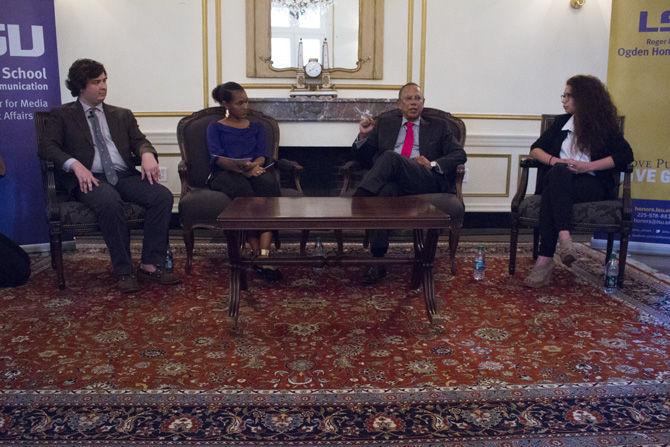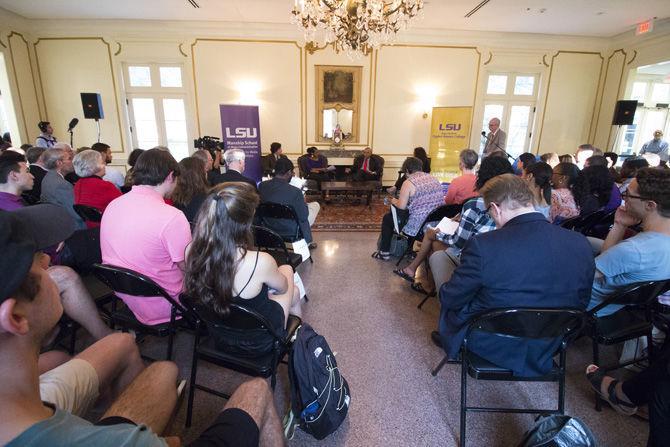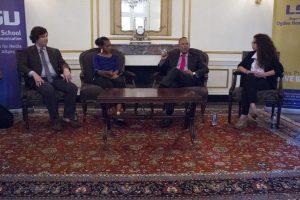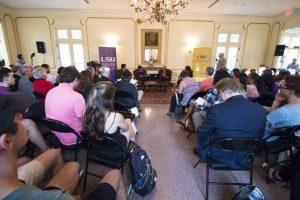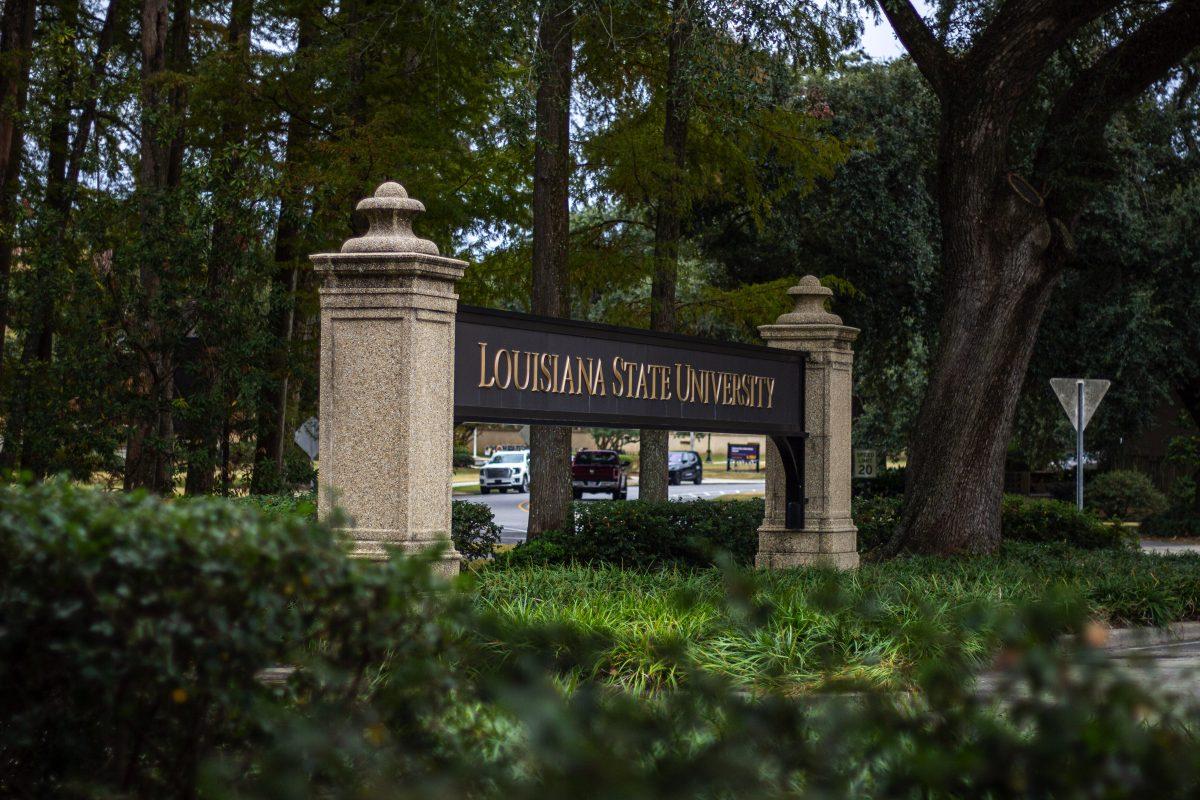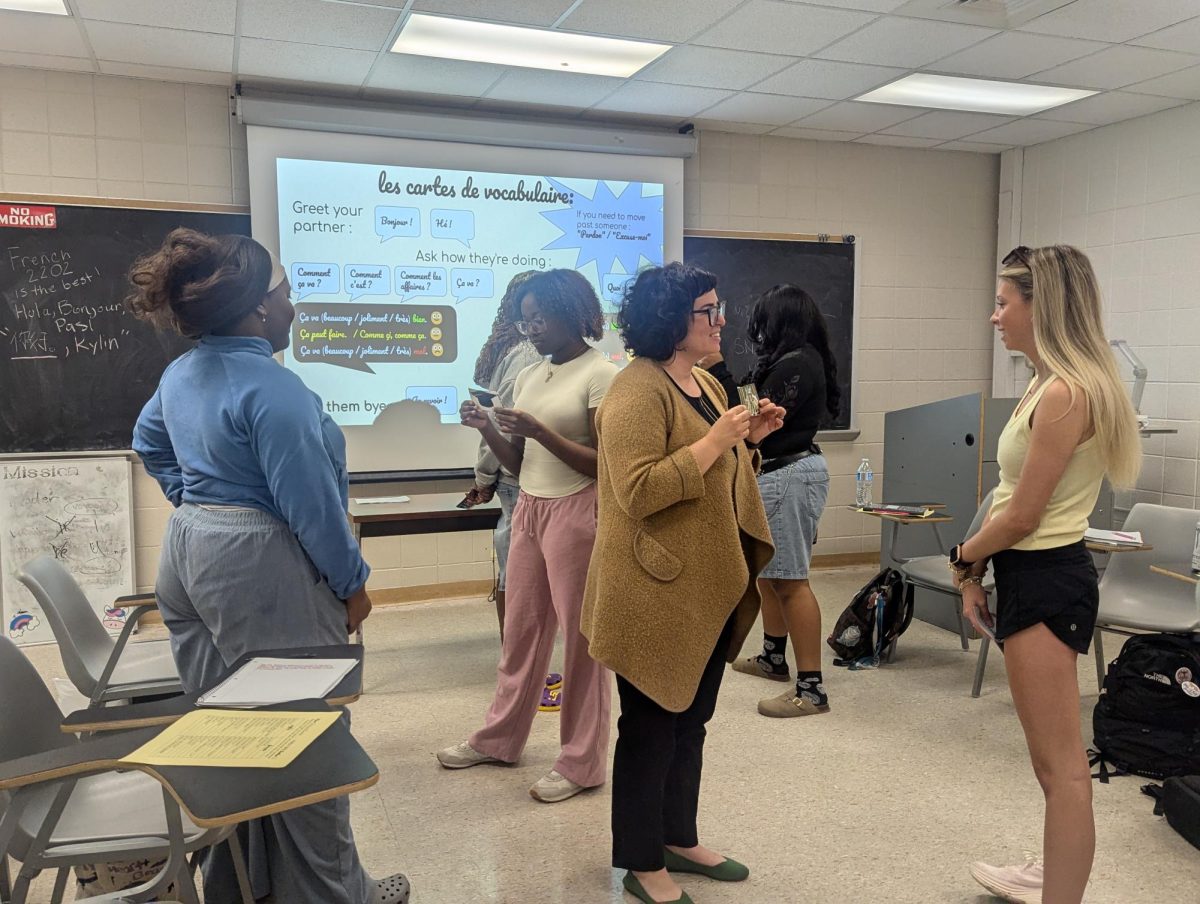The New York Times Executive Editor Dean Baquet visited the University for a student-conducted, roundtable conversation at the French House on Friday evening.
Baquet is a New Orleans native who has worked at various newspapers throughout his career including The Times-Picayune, The Chicago Tribune and The Los Angeles Times. Baquet won the 1988 Pulitzer Prize for Investigative Reporting for a story exposing corruption in the Chicago City Council.
“Being from New Orleans has made me care probably more deeply about cities,” he said. “It’s made [me] care more deeply about people who aren’t making it.”
The conversation comprised a series of questions from students of the Manship School of Mass Communication about President Donald Trump’s administration, distrust of the press and the integrity and shift in journalism. The general audience was able to ask questions, as well.
“I think we have to be ever more transparent than we ever were,” Baquet said. “News organizations like The New York Times, historically, are not that transparent. We’re not used to telling people how we do things. We’re not used to elevating our reporters so people know who’s who. I think we’re not used to personalizing our people. And as a result people have a monolithic sense of what big newsrooms like The New York Times are.”
To start the conversation, Baquet answered a series of questions on how NYT handles covering President Trump and his administration.
“I think that his attacks on The New York Times and the media in general are bad, to state the obvious,” Baquet said. “I think that one of the things I would say is it’s no coincidence that there are three institutions that have the authority and the power to challenge the president, constitutionally, and historically they are Congress, The Courts and the press. I don’t think it’s a coincidence this administration has attacked all three of those.”
During the conversation, Baquet spoke on the shift in journalism and the skills future reporters should have.
“When I started there were fewer skills; there was writing and there was editing,” he said. “I now think that there are many skills that can be taught and I expect the journalists of the future are going to be able to dabble in all of them. I think somewhere in America there is a group of young future art critics who are going to revolutionize art criticism because they are going to be able to integrate video and multimedia into their criticism in a way that is unimaginable to us.”
Dean of the Manship School of Mass Communication Jerry Ceppos helped facilitate the event.
“I don’t think you can go to any other university in the country and hear some people like [Baquet] so we like to bring in people like Dean,” Ceppos said. “We have now hired two of his employees.”
Mass communication senior Sarah Gamard had the opportunity to be one of the three students to present questions to Baquet.
“Those questions that I asked are things that are constantly on my mind,” Gamard said. “It’s interesting to to hear what the people that are making the top executive decisions at the top newspapers are thinking.”
Additionally, Baquet said a documentary is being made about The Times and its coverage of President Trump in the first year.
“You’re headed toward the greatest era to be a journalist,” Baquet said. “The combination of all the new technologies, the ability to reach wider audiences and international audiences add up to something great. I think it’s just going to be a great time to be a journalist; hard, but a great time.”



